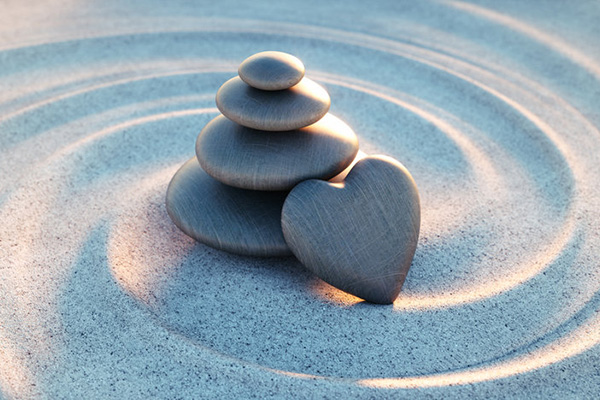emotional control
The Wise Approach To Mercury Retrograde
According to astrology, our lives can be in upheaval when Mercury goes Retrograde. Its effects can be felt by anyone, regardless of your zodiac sign.
However, some signs may be more sensitive to its influence than others. This is because Mercury is the ruler of Gemini and Virgo, and people with strong placements of these signs in their birth charts may be more likely to experience disruptions in communication, technology, and transportation during a Mercury retrograde.
Although this concept is widely touted in the spiritual and metaphysical communities, I find that many people affected by it do not understand its true meaning and are not well informed on how best to deal with it.
Mercury retrograde is indeed a challenging cosmic influence. It tends to feel like we have just finished one round of it, and the next one is already looming on the horizon.
A common side effect of Mercury Retrograde for many people is unexplained nervous energy or restlessness. You feel anxious and stressed about everything, and you can’t figure out why? Sometimes you feel anxious about things that have never bothered you in the past.
You may also have a hard time concentrating on things. Retrograde energy can throw even the most calm and centered person off balance.
Letting Go Heals Our Silent Pain
 Too often we are not aware of the emotional pain in others. We are blissfully ignorant of the invisible pain that they are suffering. This is the secret pain of grief, of tragedy and loss. It is often the silent pain that many of us carry inside, a pain we secretly endure every day.
Too often we are not aware of the emotional pain in others. We are blissfully ignorant of the invisible pain that they are suffering. This is the secret pain of grief, of tragedy and loss. It is often the silent pain that many of us carry inside, a pain we secretly endure every day.
Our grief and sorrow is something we hide from the world, because we tend to feel ashamed, embarrassed or guilty for not being ‘stronger.’ The fast-paced modern world we live in has little patience with those who need time to mourn and heal. Life goes on, they say.
Those who are grieving must get through their pain as best they can, often without having anyone to talk to or no one wo cares to understand. They must simply put on a happy face and get through the day.
Sometimes people are having a hard time processing a loss or disappointment because they do not want to let go. Why would anyone choose to hold on to the pain, you may ask? Well, there is sometimes a strange comfort found in a state of holding on. When our world feels upside down and the future seems uncertain, we tend to hold on to the familiarity of the past, of the life we once knew.
The energy of such an ongoing state of silent pain soon becomes an imbalance in the throat chakra and blocks our ability to heal. The throat chakra plays a very big part, because it is our energy center of truth, the seat of our power to communicate our free will and talk about our true feelings.
Suppressed mental and emotional pain in time manifests itself in our body in many debilitating ways, such as migraine headaches, stomach aches, physical discomfort and a variety of other symptoms and potential health problems. Only when the pain is addressed and processed, will it go away and will our well-being improve.
Conscious Living In A Fear-Based Culture
 There are five basic emotions: fear, anger, grief, love and joy; in this order, because this is the order in which most humans experience these emotions.
There are five basic emotions: fear, anger, grief, love and joy; in this order, because this is the order in which most humans experience these emotions.
I am sure you know many people who are fear-based. Perhaps you are fear-based yourself? Fear-based people have allowed our culture to blackmail them into believing that they must live up to certain standards to be acceptable.
For example, many people are dealing with this uncertain economy through the lens of “Oh, we must maintain the status quo, no matter what!”
Try to see this imagined burden for what it is: a mirage, not to mention an energy leak. This mirage stems from the fear that we won’t be able to keep up appearances; in other words not be able to afford the items that our fear-based culture with its lack consciousness and scarcity mentality decrees makes us acceptable to the status quo.
In fact, we could all do just as well with much less, and feel good about ourselves and our efforts; maybe even better because there would be more integrity in our energy, because we would be living in truth!
There are countless other ways our culture perpetuates this hoax. Think about it. I am sure you can think of many more examples. One way to break the chain of this mindless brainwashing is to realize it is really none of our business what others think of us, and vice versa.
Now, think of a squirrel. A squirrel just goes about his business of doing what squirrels do. If he stumbles upon a big, fat, juicy acorn, that is good. But if he doesn’t, he continues to go about his business just the same, and either way life is good, whether his fare is meager, robust or in-between. And, he isn’t concerned about what the other squirrels think about him either way.
Conscious Conflict Resolution
 Dealing with tension and conflict is one of the most challenging dynamics in friendships and relationships. We have all found ourselves in a shouting match with someone we love, or concluding an argument feeling awful and unresolved.
Dealing with tension and conflict is one of the most challenging dynamics in friendships and relationships. We have all found ourselves in a shouting match with someone we love, or concluding an argument feeling awful and unresolved.
Getting to the root of an issue without all the drama sometimes feels impossible. But conflict resolution is a skill, and one that can be honed with practice and patience.
The following strategies are helpful in shifting from overreaction to consciously seeking resolution when faced with difficult conversations or conflict scenarios.
Pause For Self-Awareness
Pause and identify what you are feeling. Step back from the feeling and merely observe it, as well as any thoughts that come along with the feeling.
Recognize that ‘you’ are not the feeling; it is a simply a sensation you are experiencing. Often people will say they are ‘angry,’ but words are powerful and this indicates that you have identified with the anger. You are actually saying: ‘I am anger.’
Do not choose to ‘be anger.’ You are merely experiencing anger. Shifting this mindset can help to separate your rational mind, from the emotional sensation of anger (or hurt, or whatever feeling you may be experiencing).
Once you are able to observe your emotions and thoughts in this way, it becomes much easier to avoid reacting from them. By not reacting, you give yourself the opportunity to think about your response first, and consciously choose your course of action.
How To Avoid Empath Ego-Traps
 Being an empowered empath is a wonderful gift and blessing. But the empath ‘label’ can also become problematic when it is misconceived by some as meaning more than it truly signifies.
Being an empowered empath is a wonderful gift and blessing. But the empath ‘label’ can also become problematic when it is misconceived by some as meaning more than it truly signifies.
There are very common ego-traps that some empaths and highly sensitive people get hung up on with regards their empathic experiences. These ego-traps can be very counterproductive, as it may actually be holding them back from meaningful personal growth and progressing our spiritual path.
These ego traps are easy to get wrapped up in, but they are not a sign of weakness or failure. The experience of being an empath is often intense and confusing. These ego-traps offer lessons for us that often go hand-in-hand with life as an empath.
Some of the typical empath ego-traps are as follows:
Empaths Always Know Best
Assuming we are always right about how we ‘read’ a situation or person, or needing to save everyone and be everybody’s ‘therapist.’ We may have a good read that something is amiss, or that someone is upset, but its unwise to assume we always know exactly why.
Often empaths will feel something from someone and decide for themselves why that person is feeling that way. This is a good way to create conflict and tension in relationships! Instead of assuming, rather ask.
And if the person doesn’t want to talk about it, try assuming it is not about you, and that maybe you have no idea what is really upsetting them. Start there. Give the person space and do not make it about you. Continue reading
Being An Empath Is No Excuse
 There’s nothing wrong with identifying as an empath. Actually, it can be beneficial to step into this truth for oneself, and own your empathic experiences as a significant aspect of your life.
There’s nothing wrong with identifying as an empath. Actually, it can be beneficial to step into this truth for oneself, and own your empathic experiences as a significant aspect of your life.
But for many people it is difficult to take on this ‘label,’ because they don’t feel worthy or they feel they are saying, “I’m more special than other people.” In these cases, there is great benefit in coming to terms with being an empath because it doesn’t have to mean either of those things.
Being an empath is not something they have to be worthy of – it’s a trait they either have or don’t have. And it’s not a matter of being better or ‘more special’ than anyone else – that notion comes from a fear of being judged.
Being an empath means being highly sensitive to emotional energies, and feeling those emotions in your own body as if they were your own. The term ‘empath’ is just a word we can use to describe this trait.
There is some scientific evidence for the empath experience. Studies* show we all have a very specific group of cells in our brain responsible for empathy and compassion, called the Mirror Neuron System. In the brain of highly empathic people, it is thought this group of cells may be hyperactive or hypersensitive.
Being an empath is a wonderful blessing and gift, instead of it being a ‘curse,’ weakness or disability. However, it is important for the empath to become empowered and own their sensitivity.
In order to accomplish this, it is vital for the empath to avoid adopting a ‘victim mentality’ or constantly blaming everything negative that happened in their life on the fact that they are an empath.
Some empaths erroneously believe many of the struggles they encounter can’t be overcome. They assume that they will always be crippled in some way by their experience as an empath. This is false. They may have specific experiences and lessons because they’re an empath, but these are opportunities for growth. Some of the ways this manifests are:

